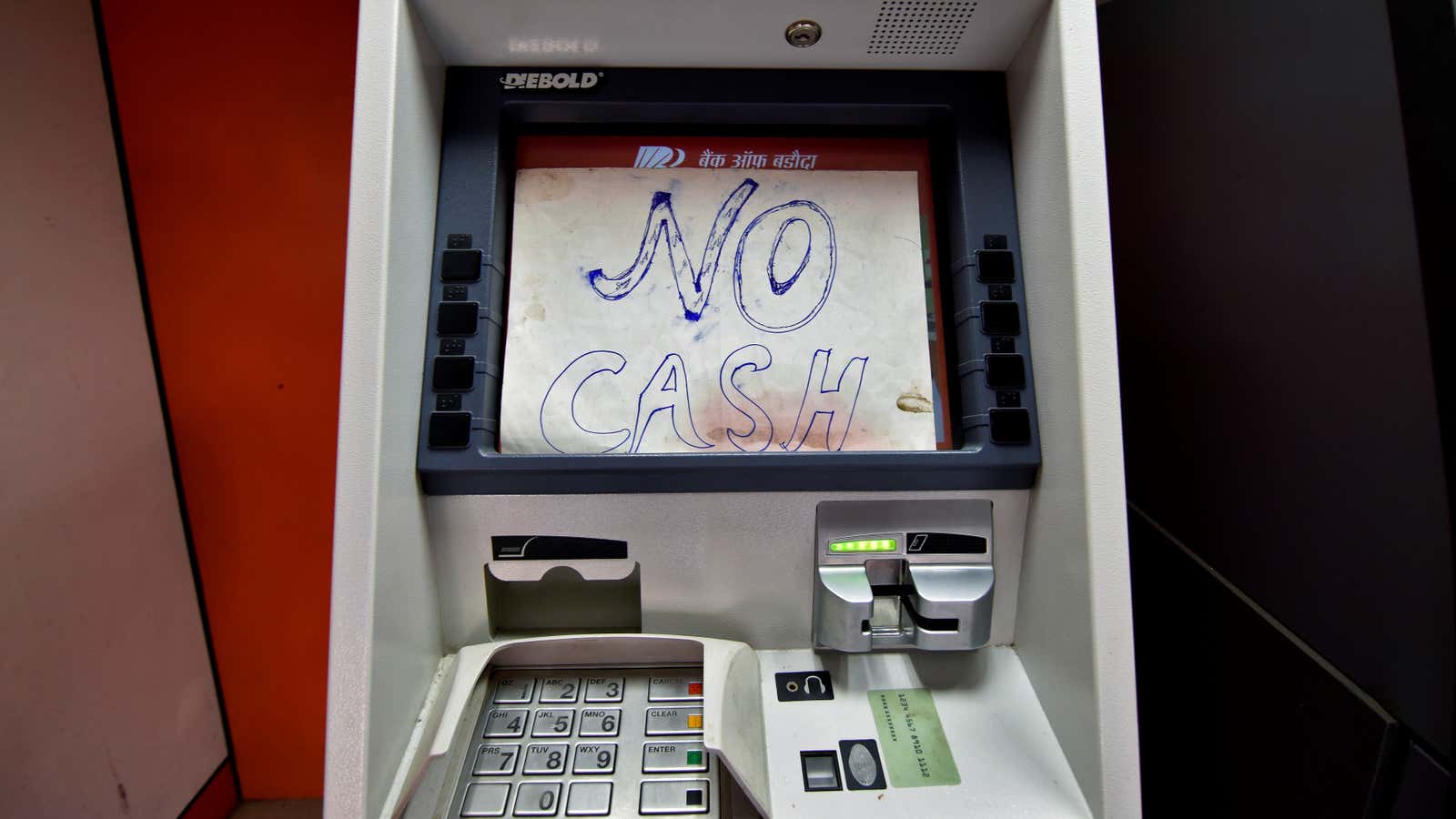India’s cash crunch is sending one currency soaring.
Since prime minister Narendra Modi pulled Rs500 and Rs1000 notes from circulation on Nov. 8 in a bid to fight corruption and terrorism, the weekly volume of bitcoin trading in India has nearly doubled from prior levels.
The increased trading has helped push the digital currency’s value to recent highs. On Dec. 9, bitcoin neared one its highest values since Feb. 2014 (it was still a good distance from its all-time highs in Dec. 2013). During the day, it surpassed $769.30—just short of June’s $781.31, bitcoin’s highest value this year.
It’s normal for bitcoin to surge at times of currency crisis. The eight-year old virtual currency, with no central authority, is viewed as a safe haven from wild fluctuations such as those recently seen in Venezuela.
India’s interest in bitcoin has a different motivation. The government has been pushing citizens toward a cashless economy because a physical currency is expensive to maintain and can serve as fuel for a black market. With the removal of the notes from circulation, Indians have been seeking out digital payment apps, while others have looked into bitcoin. India’s leading bitcoin company Unocoin said the average number of daily visitors to its website has spiked to 14,000, compared to roughly 4,000 prior to demonetization.
However, there has been some confusion among those looking to convert their paper money into the cryptocurrency, which is created and stored online. In India, consumers can’t simply exchange cash for bitcoins. Instead, they’re required to share their bank account details and undergo a know-your-customer process to start trading in the online currency.
Despite bitcoin exchanges not accepting cash, there were still many takers for the digitized currency. Local bitcoin firm Zebpay traded Rs100 crores ($14.8 million) worth of bitcoin in all of 2015, but saw Rs75 crores (approx. $11.2 million) in bitcoin trading in November alone. Chief executive officer Sandeep Goenka claimed that his bitcoin exchange was on track to add 50,000 users per month following the government’s decision.
In the world’s largest remittance market, bitcoin is appealing because of how cheap and efficient it is—credit card transaction fees are nearly 10 times more than what’s charged in bitcoin. More merchants have also started accepting bitcoin payments since the asset can be liquidated with a small transaction fee of 1%.
